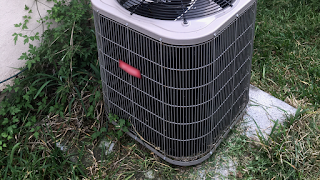
This post originally appeared on the Hermit Haus Redevelopment website on 2018-11-27.
Your reason for investing should drive the type(s) of investment(s) you invest in. To oversimplify a bit, there are two investment strategies: building wealth and creating income. In the real world, these two strategies are not mutually exclusive. Where you are in life will influence your strategic choice.
Let’s look at an example rental house that requires no initial out of pocket investment. We’ll assume the debt on this property covers the initial renovation and all the costs of acquisition. We’ll even assume the house provides positive cash flow from the time it’s rentable—$50 each month after allowances for debt service, taxes, insurance, vacancy, maintenance, and capital replacement (big ticket items like HVAC units that can’t be expensed off in one year).
Multiple Perspectives
- Free Money
- “Hey, I don’t have any of my own money tied up in this deal. It’s like getting a tax-free $50 check each month.” Depreciation will likely offset the taxable income and then some. This is a valid consideration if you have the time and energy to manage the property. In many markets, you’ll probably be able to raise the rent and the net cash flow each time you renew or release. Thanks, Inflation! Eventually, the rent will pay off the debt, and you’ll own a property without ever having to use your own money to pay for it. Then the cash flow will be great! All you need is enough time, patience, and good management.
- More Free Money
- “Vacancy, schmacancy! Taxes, insurance, and debt service are the only real expenses to worry about.” OMG! This is a bad idea. I have seen more than a few of investors come grief because they forget to set aside money for future expenses. How will you pay the mortgage during the time (sometimes months) it takes to find a new viable tenant? Where will the money for that new roof come from if you don’t have an insurable catastrophe? Will you just let it leak and reduce the property’s value until the roof falls in?
- Time Is Money
- “It’s not worth my time.” If your income is high enough, this is a valid point at any stage of life. But if you have enough time to wait for the property to appreciate, it may be short-sighted.

You’ve got a $1200 security deposit, but where does the rest of the money come from? Hopefully, you’ve been setting aside some of the money from each month’s rent for repair, vacancy, and capital replacement reserves.
Younger people have a lot of time to build wealth. They also tend to have jobby-jobs to fund their investments and lifestyles. They can absorb lower income from their investment in return for asset growth over time. Inflation is their friend, so this opportunity might be a good investment for them.
People approaching retirement face the loss of that jobby-job income. Their investments have to provide enough income to live on or risk eroding their investment basis. Inflation is no longer their friend. This opportunity might not fit their investment needs. But they might be able to satisfy their income requirement by lending the money to someone who has time to let this opportunity mature.
What Would I Do?
Even though I’m at the retirement end of the spectrum, I would jump on this opportunity.
- I tend to take a longer-term view of the investing game.
- Given the lack of out-of-pocket investment, opportunity costs are reduced to essentially nothing except time.
- I have systems in place that mean this opportunity would not require an onerous amount of my personal time.
- It is an opportunity to do good in the world by creating jobs for the renovation crews, my investors, and support staff—and by providing sustainable housing.
- And finally, it would be a way to build wealth in my companies for those who will manage them when I am no longer in the world.

No comments:
Post a Comment